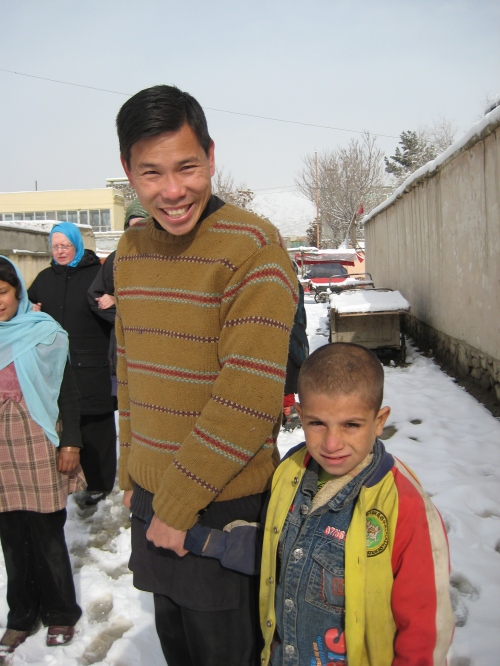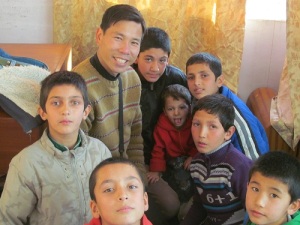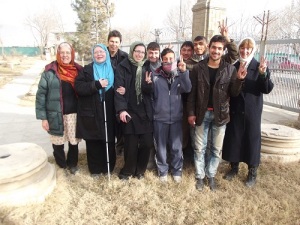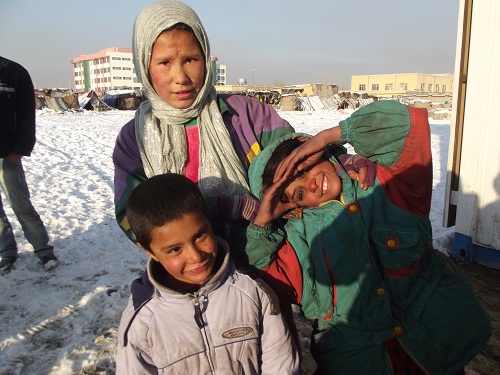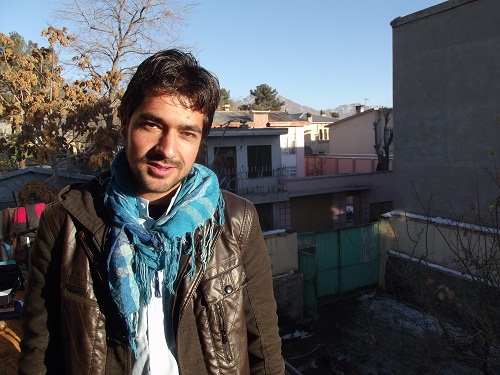Lindsey German, from the Stop the War Coalition, reflects on years of the war on terror.
If all had gone according to plan, the 10th anniversary of the Iraq war should have been a time for government jubilation. In Tony Blair’s dreams, he would still be feted as a hero, having toppled a dictator and brought peace and democracy to the Middle East. The actual scenario turned out rather differently. Iraq is in turmoil, terrorism is a much greater threat across many parts of the world than it was when the ‘war on terror’ was launched 11 and a half years ago, attacks on civil liberties have worsened, with torture, rendition and imprisonment without trial now part of the fabric of the war, and discrimination and racism against Muslims growing.
The ostensible reason for the war – the need to prevent Saddam Hussein using his ‘weapons of mass destruction’ which he was supposedly concealing in the grounds of his palaces – has long been revealed to be a lie. The real aim of the war was regime change which would enable strategic control of Iraq and the wider region to be once again in the hands of the west.
Ten years on, the numbers of Iraqi dead are perhaps as high as 1 million, with many more made refugees and displaced. Living conditions for many Iraqis remain terrible, the effects of war have harmed physical and mental health, and in parts like Fallujah there is evidence of serious problems with pregnancy and childbirth, attributed to the use of depleted uranium by the US forces there. Meanwhile, privatisation of oil and other industries, corruption and vast profits for private security firms are the spoils of the war for western companies and their friends in government.
Yet despite the obvious failure of the Iraq war, successive governments appear addicted to war. There are still over 100,000 troops in Afghanistan, a war which has become more deadly as time has gone on. There is covert intervention in Syria and Iran, and recently David Cameron has announced he dispatch of 300 British troops to join the French intervention in Mali.
All this raises the question of how many more years Britain will continue to bomb and invade countries in the name of fighting terrorism? How many more countries will be drawn into the theatre of war? How many more lives will be lost in the task of eradicating Al Qaeda? How many people, especially in Muslim countries, will find grievances against the bomber and invaders which lead to them taking up arms?
I ask these questions because yet again a serious political crisis has been met with a not just inadequate answer, but one which will produce the diametrically opposite effect than its supposed intention.
David Cameron said of the recent Algerian hostage crisis that ‘This is a global threat and it will require a global response. It will require a response that is about years, even decades, rather than months.’
Is that years and decades on top of the 11 and a half years already spent on the war on terror, since the war in Afghanistan began in 2001? Back then, its aim was to eradicate Al Qaeda from Afghanistan – rapidly achieved, although it became active in Pakistan. Since then, Al Qaeda or related Islamic terrorism has become a feature, at different times, in Iraq, Yemen, Syria, Libya, Somalia, Mali, Algeria…and on and on. In 2001, no one talked about the threat of such terrorism in most of these countries. Now greater and greater areas of the world have become new sites of conflict.
Everything that the peace and antiwar movements said 10 years ago, when up to 30 million people marched around the world and Britain saw its largest protest demonstration ever, has turned out to be true and everything our rulers told us has turned out to be false. A recent opinion poll in the Guardian showed that 55 % of those questioned thought the 15 February 2003 marchers were right, with even higher proportions among working class respondents.
This is one of the legacies of the antiwar movement: we have created a strong current of anti war opinion which makes it much harder for governments to directly intervene.
Today in Britain the government is enforcing austerity through cuts in welfare, education and health but never hesitates to spend billions on weapons and new deployments of troops. The cost of four years of the Afghanistan war, £20 billion, is the same as planned government savings on the NHS.
The issues are connected. The globalised neoliberal system relies heavily on its military wing to maintain strategic control of markets and to gain access to raw materials. So we face both economic crisis with devastating consequences and a rampant imperialism intervening in ever-wider parts of the globe.
It is these connected issues which make the anti war movement so important. We didn’t stop the war but we did create a mass movement to oppose imperialist war. We have made it harder for them to launch further wars. We have also made the connection between war and economic crisis, and campaigned against attacks on civil liberties and Islamophobia.
Our recent conference which attracted around 1000 people brought together a range of international campaigners, activists and speakers to reiterate our opposition to the war ten years ago. But more importantly, it stressed the need to confront war today by opposing present interventions and future threats.
The threat of war and militarism is such that we need to unite around what we agree on in order to defeat governments and warmongers. Stop the War is involved in organising a demonstration against drones at RAF Waddington base in Lincolnshire on April 27 which we hope will gain wide support. We support the demo and blockade of Trident in Scotland in April, the CND Aldermaston event at Easter and we hope to bring some of these issues together at the People’s Assembly against Austerity on June 22 which will be campaigning against welfare, education and health cuts.
This means a renewal of the anti war and peace movements, a commitment to organising, educating and campaigning in the months ahead. We should know
by now that we cannot rely on the politicians to stop wars. Only the mass of people can do that.
Lindsey German is convenor of the Stop the war Coalition and author of a new book, How a Century of War Changed the Lives of Women (Pluto)

